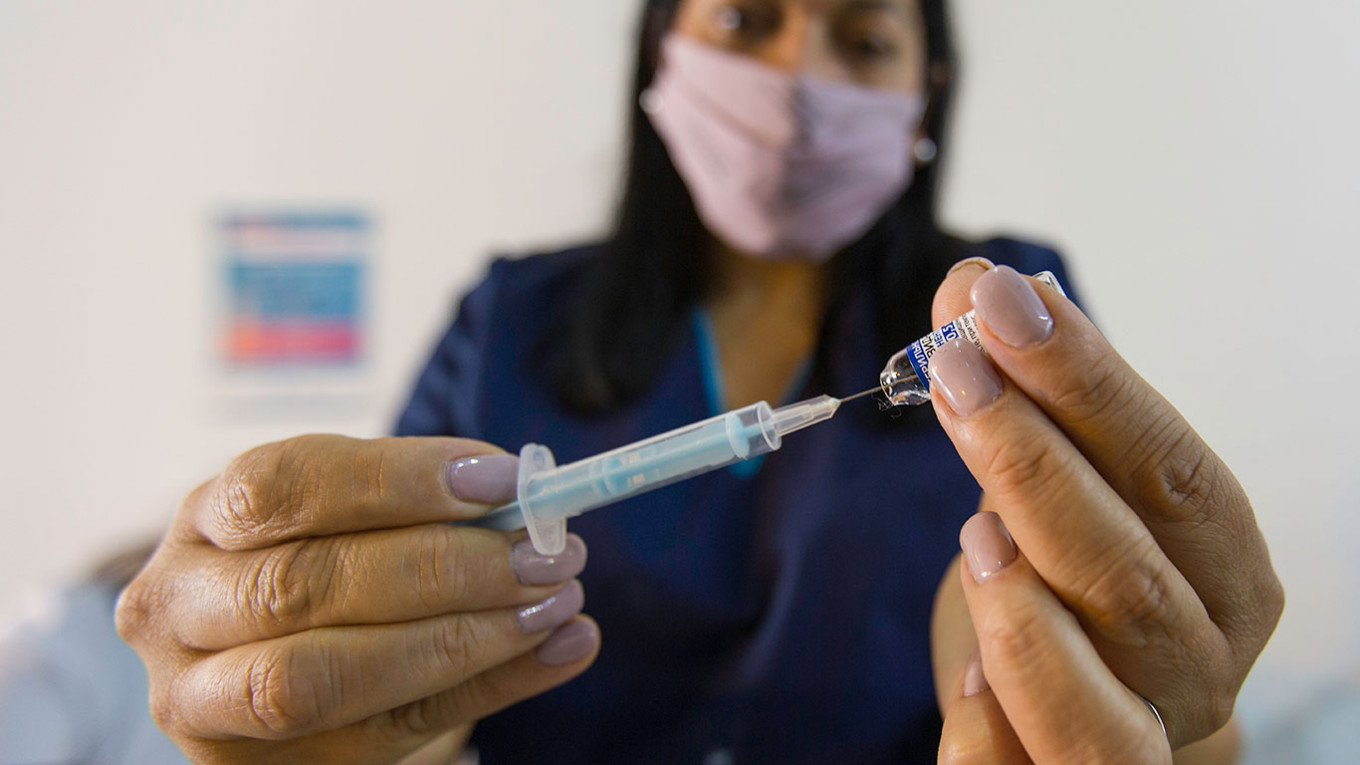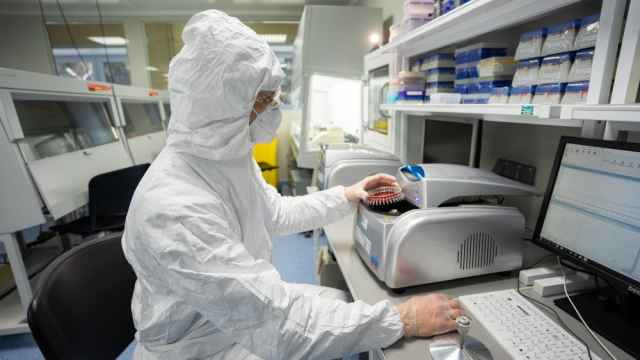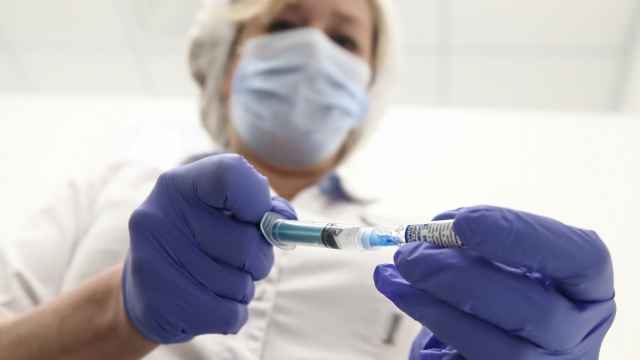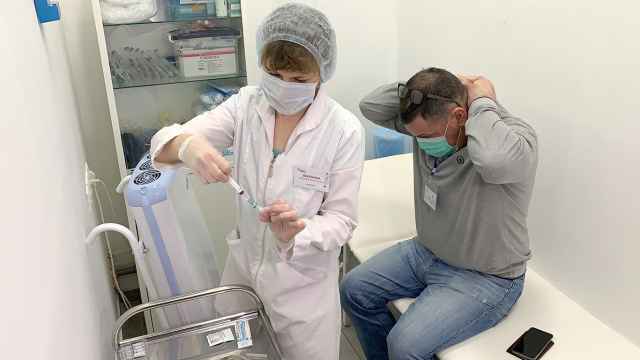The immune response generated by Russia’s Sputnik V coronavirus vaccine could fade significantly six months after vaccination, a new study published in leading medical journal The Lancet has found.
Researchers in Argentina studied antibody levels among 602 healthcare workers in what is the first independent peer-reviewed study of the vaccine’s longer-term ability to protect against the coronavirus.
The findings demonstrate the importance of booster shots to maintain high levels of protection against Covid-19 infection for those vaccinated with Russia’s Sputnik V, the authors said.
In the study, just 31% of volunteers who completed the full two-dose Sputnik V vaccination cycle still had so-called neutralizing anti-RBD antibodies — an antibody which fights the coronavirus’ protein spike — six months after they were first vaccinated.
The new study, published last week, was based on analyzing blood taken from vaccinated volunteers. It did not measure the effectiveness or efficacy of Sputnik V, which is conducted by tracking the rate of infection among a vaccinated and unvaccinated control group of volunteers.
Sputnik V consists of two different adenovirus-based shots which are administered 21 days apart. Its developers say this “vaccine cocktail” offers more robust and longer-lasting protection against the coronavirus than Western-developed mRNA vaccines produced by the likes of Pfizer and Moderna. Those claims have not been supported by independent or peer-reviewed studies, few of which have been published on Sputnik V.
Neutralizing antibodies play a crucial role in fighting the coronavirus and helping to stop exposed individuals contracting the disease by countering the virus’ ability to attach to cells in the body. Variants of concern, such as the Delta variant which is the dominant strain in Russia and across Europe, have different protein spikes which are more effective at infecting people and are thus more contagious.
The authors, led by Rossana Elena Chahla of the public health authority in Argentina’s Tucuman province, found antibody levels first began to fall two months after vaccination, but remained high until at least three months after vaccination, with 95% of patients maintaining elevated anti-RBD readings. By the six-month stage, the next assessment point in the study, this had dropped to 31%.
Volunteers who had been previously infected with Covid-19 showed a stronger antibody response with the Sputnik V vaccine, including better protection against variants of concern, the study also found.
The jab’s marketers, the Russian Direct Investment Fund (RDIF), say Sputnik V offers longer-lasting protection against the coronavirus than Western-made vaccines. Its own analysis of the pandemic in San Marino, where most of the tiny country’s adult population has been vaccinated with the Russian jab, claims 60-80% effectiveness between six and eight months after the administration of a second dose.
Those claims have not been backed up by independent research. Scientists have accused Russia’s vaccine developers of cherry-picking and misrepresenting data in a bid to outdo Western pharmaceutical companies.
Russia has applied for authorization for Sputnik V from both the World Health Organization (WHO) and European Medicines Agency (EMA), though neither have yet approved the vaccine.
Only 37% of Russians are fully vaccinated against the coronavirus amid widespread vaccine hesitancy. As well as urging Russians to get vaccinated, the country has also started administering booster shots to those vaccinated more than six months ago.
President Vladimir Putin said Sunday that he had received a booster shot, and on Wednesday revealed he also took an experimental nasal spray vaccine which is currently being developed in Russia.
A Message from The Moscow Times:
Dear readers,
We are facing unprecedented challenges. Russia's Prosecutor General's Office has designated The Moscow Times as an "undesirable" organization, criminalizing our work and putting our staff at risk of prosecution. This follows our earlier unjust labeling as a "foreign agent."
These actions are direct attempts to silence independent journalism in Russia. The authorities claim our work "discredits the decisions of the Russian leadership." We see things differently: we strive to provide accurate, unbiased reporting on Russia.
We, the journalists of The Moscow Times, refuse to be silenced. But to continue our work, we need your help.
Your support, no matter how small, makes a world of difference. If you can, please support us monthly starting from just $2. It's quick to set up, and every contribution makes a significant impact.
By supporting The Moscow Times, you're defending open, independent journalism in the face of repression. Thank you for standing with us.
Remind me later.






